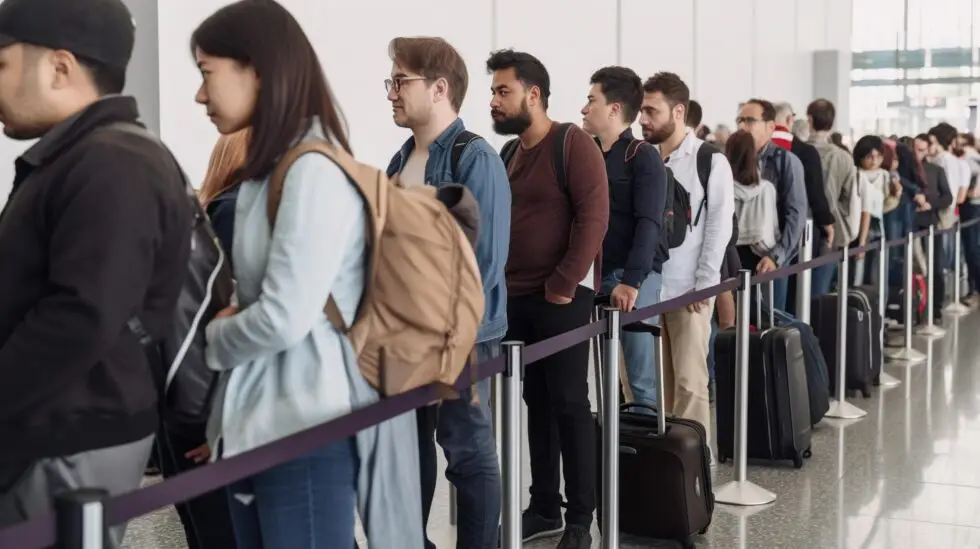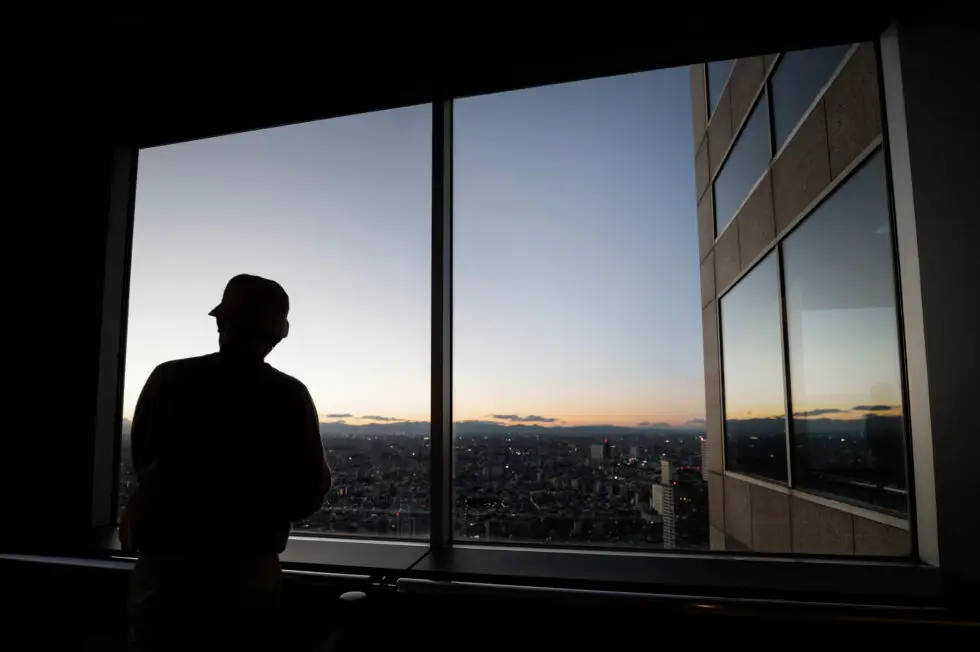What does § 10 AufenthG regulate?
§ Section 10 of the Residence Act (AufenthG) is a key paragraph that regulates the granting or exclusion of residence permits during and after asylum proceedings. It specifies the conditions under which a Residence permit can be granted and which restrictions apply. Section 10 is particularly important for people who are undergoing asylum proceedings or whose application has been rejected.
Legal requirements of § 10 AufenthG
The legal requirements of Section 10 (1) of the Residence Act are clearly defined.
- In principle, Residence permit may only be issued during an ongoing asylum procedure under strict conditions.
- The approval of the supreme state authority is required
This is based on Section 10 (1) sentence 1 and sentence 2 AufenthG
This paragraph states that, unless you are legally entitled to one, you will only be granted Residence permit before the asylum procedure has been completed if you have the approval of the highest state authority and important interests of the Federal Republic make this necessary.
If you are legally entitled to § 18a AufenthG or § 18b AufenthG, you can only obtain a Residence permit before the end of the asylum procedure with the approval of the highest state authority and if there is an important interest in Germany.
In the case of a rejected or withdrawn asylum application, additional regulations apply, such as the ban on issuing a Residence permit before leaving the country (Section 10 (3) sentence 2 AufenthG).
There is a situation under Section 5 of the Residence Act. §§ Sections 22 - 26 can be granted for humanitarian reasons Residence permit . This then applies to Residence permit § 22 AufenthG, § 23 AufenthG, § 23a AufenthG, § 24 AufenthG, § 25 AufenthG, § 25a AufenthG, § 25b AufenthG and § 26 AufenthG.
There are also situations in which the granting of a residence permit during the asylum procedure is out of the question. This includes, for example, if the asylum application has been rejected in accordance with Section 30 (1) numbers 3 to 7 of the Asylum Act.
A different special regulation applies if a residence permit has been issued in accordance with Section 25 (3) sentence 1 AufenthG (if prohibitions on deportation in accordance with Section 60 (5) or (7) AufenthG apply).
A special regulation also applies to people who are eligible for a residence permit under § 25a or § 25b AufenthG.
Further exceptions apply in accordance with Section 10 (3) AufenthG as follows:
Legal text: "A Residence permit in accordance with Section 18a, Section 18b or Section 19c (2) may not be issued to a foreigner whose asylum application has been incontestably rejected before departure. A foreigner who has withdrawn his or her asylum application may only be granted a Residence permit in accordance with Section 18a, Section 18b or Section 19c (2) prior to departure if he or she entered the country before March 29, 2023; the same applies to the granting of a residence permit in accordance with Section 6 to the foreigner's spouse and unmarried minor child."
In principle, the provisions of Section 10 AufenthG aim to separate the asylum procedure from residence law claims and to create clear limits for exceptional cases.
Who is affected by § 10 AufenthG?
The application of Section 10 (1), (2) and (3) AufenthG affects several groups of persons:
- Asylum seekers with ongoing proceedings: They are subject to the strict requirements of this paragraph, which means that they are generally not granted Residence permit until the asylum procedure has been completed.
- Rejected asylum seekers: Persons whose asylum application has been rejected cannot receive Residence permit before leaving the country - unless special protection regulations such as § 25 para. 3 (prohibition of deportation) apply.
- Skilled workers with specific entitlement: These are persons who are rejected asylum seekers in accordance with Section 10 (2) sentences 4 and 5 AufenthG who have no entitlement and withdrawn asylum applications from asylum seekers who entered the country before 29.03.2023.
Relevance of Section 10 AufenthG for different target groups
§ Section 10 AufenthG has different effects depending on the target group. While asylum seekers are often confronted with restrictions, skilled workers and family members can benefit from exemptions. The target group orientation of this paragraph is reflected in the following regulations.
Effects of § 10 AufenthG on asylum seekers
Section 10 AufenthG has far-reaching legal consequences for asylum seekers.
- During the asylum procedure: As a rule, asylum seekers cannot receive Residence permit unless special exceptions apply, for example in the case of a legal entitlement. This only works with the approval of the highest state authority. If a foreigner is entitled to be granted a residence permit, you must withdraw your asylum application.
- After rejection of the asylum application: If an application is rejected, Section 10 considerably restricts the possibility of applying for Residence permit before leaving the country. In exceptional cases, such as a ban on deportation under Section 25 (3), or in humanitarian cases under Section 5 of the Residence Act (Sections 22-26 Residence Act), solutions can still be found.
These provisions often seem drastic, but offer clear rules that those affected can use as a guide. We will be happy to support you if you are unsure.
Importance for skilled workers and companies
Section 10 AufenthG also provides important information for skilled workers:
- Qualified skilled workers: Persons with vocational or higher education qualifications may, under certain circumstances (only with the approval of the highest state authority), apply for Residence permit during an ongoing asylum procedure in accordance with § 18a or § 18b AufenthG.
Family members and special regulations
There are also special regulations for family members under § 10 AufenthG:
- Spouse and children: As a general rule, a foreigner who has withdrawn their asylum application may only be granted a right of residence under Section 18a, Section 18b or 19c (2) of the Residence Act if they entered the country before March 29, 2023. For the foreigner's spouse and children, the foreigner must have entered the country before March 29, 2023 in order to receive a Residence permit in accordance with Section 6 of the Residence Act (family reasons).
- Special regulations for humanitarian cases: These make it easier to issue residence permits for families in exceptional cases.

Practical tips for those affected
If you are affected by the provisions of Section 10 AufenthG, it is crucial to be well prepared and take the right steps. The following overview shows you which documents you need and when it makes sense to seek legal support.
What proof and documents are required?
Submitting the right documents is the key to a successful procedure. The most common requirements include:
- Proof of identity: Passport or other official documents confirming your identity.
- Proof of the asylum application: Certificates of the submission of the application or the current status of the procedure.
- Additional documents depending on the application:
For skilled workers: certificates and proof of qualifications (e.g. for § 18a or § 18b AufenthG).
For family members: Marriage certificates, birth certificates and, if applicable, proof of family ties.
- Reasons for special regulations: e.g. medical reports for health exceptions) Complete and proper documentation facilitates the procedure and can shorten processing times.
Complete and orderly documentation facilitates the process and can shorten processing times.
When does legal advice make sense?
In many cases, legal advice is indispensable:
- If your asylum application has been rejected: If your application has been rejected and you would like to check which options are still open to you (e.g. in the event of a ban on deportation).
- Complex individual cases: If special requirements have to be met, such as for skilled worker regulations or family reunification.
- Uncertainties about deadlines and procedures: Compliance with deadlines is crucial in order not to jeopardize your Residence permit or your status in the asylum procedure.
Conclusion and the next steps
Section 10 of the Residence Act provides an important legal basis for the regulation of residence permits during and after an asylum procedure. It clarifies which requirements must be met and where the limits or exceptions lie.
Conclusion on Section 10 AufenthG
§ Section 10 of the Residence Act creates clear regulations for Residence permit in the context of asylum applications. While strict requirements apply, exceptions such as legal entitlements or bans on deportation offer individual opportunities. Sound legal advice will help you to make the most of your options.
The next step after justified asylum
If your asylum application was successful or special protection regulations apply to you, there are clear ways to take the next step:
- Update documents: Make sure your documents are complete and up to date.
- Use legal advice: We recommend seeking legal advice, especially in complex cases or in cases of uncertainty.
Your advantage: With the right preparation and competent support, you can significantly increase your chances of getting a Residence permit .
FAQ - The most frequently asked questions about § 10 AufenthG
The asylum procedure is legally concluded when the deadline for lodging an appeal (in this case the action) has expired or the action has become final.
Yes, under certain conditions. A Residence permit can be issued, for example, if a ban on deportation is established in accordance with Section 25 (3) AufenthG or if you are issued a Residence permit in accordance with Section 5 (Sections 22-26 AufenthG).
Skilled workers with a vocational qualification (Section 18a AufenthG) or an academic degree (Section 18b AufenthG) can also apply for Residence permit during an ongoing asylum procedure under certain conditions. The approval of the highest state authority is required and there must be important interests of the Federal Republic of Germany.
If you withdraw your asylum application, you may not be issued Residence permit before you leave the country. However, there are exceptions if you entered the country before March 29, 2023 or if other legal regulations apply, such as an existing ban on deportation or if you are entitled to a Residence permit in accordance with Sections 18a, 18b or 19c (2) AufenthG.
The approval of the highest state authority is always required if an Residence permit is applied for during an ongoing asylum procedure, e.g. for skilled workers or other exceptions. No Residence permit may be issued without this approval. The aim is to closely coordinate the decision on the Residence permit with the interests of the Federal Republic of Germany.









